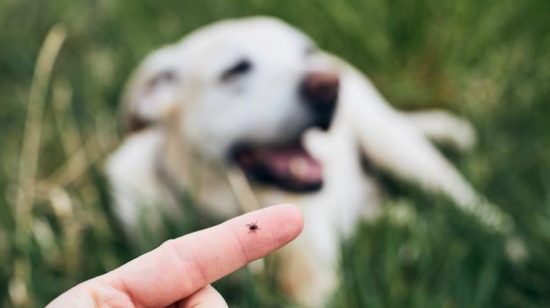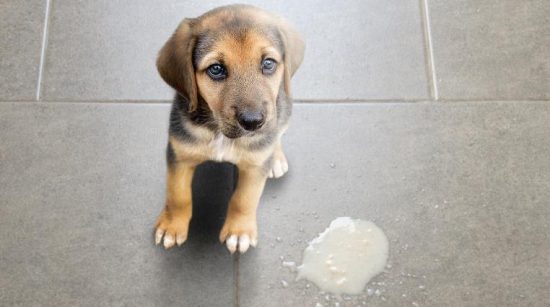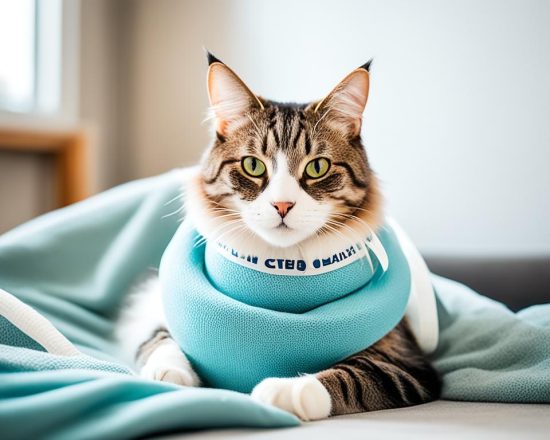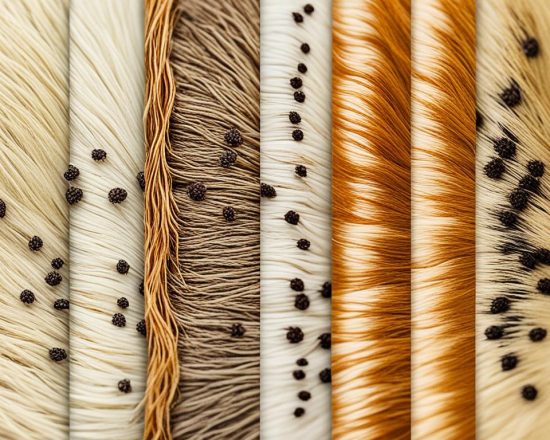Why Do Dogs Eat Their Own Poop? Reasons and Solutions
Explore the reasons why dogs eat their own poop and discover practical solutions to curb this unwanted behavior in your furry friend.
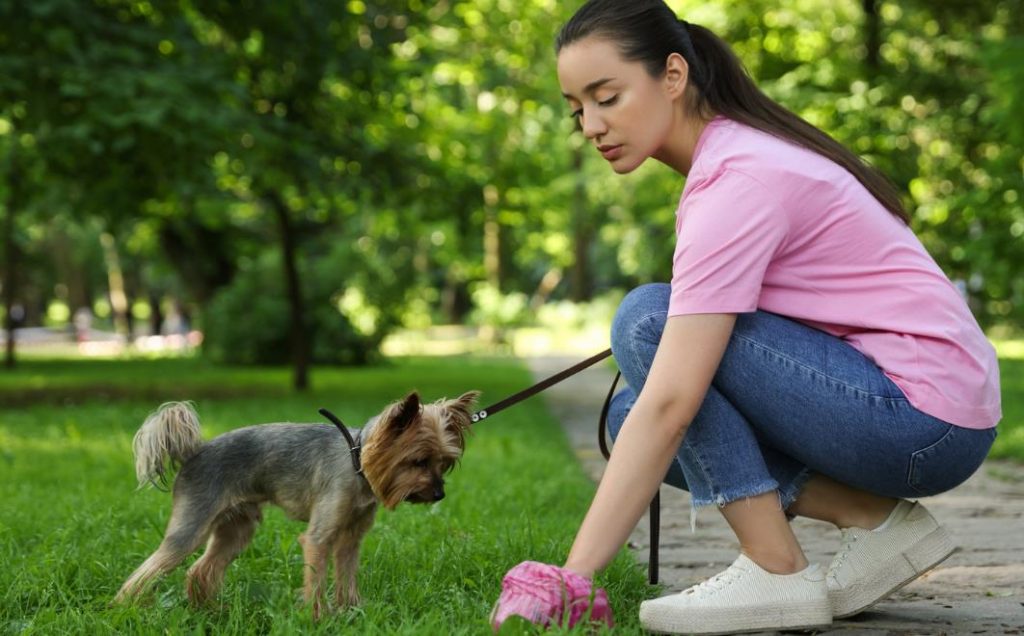
Did you know that up to 24% of dogs engage in the behavior of eating their own poop, a habit known as coprophagia? It’s a surprisingly common behavior that can leave pet owners feeling puzzled and concerned. If you’ve ever wondered why dogs engage in this unsettling behavior and what you can do to address it, you’re in the right place. This blog will explore the various reasons why dogs eat their own poop and provide practical solutions to help you put a stop to this behavior.
Understanding Coprophagia in Canines
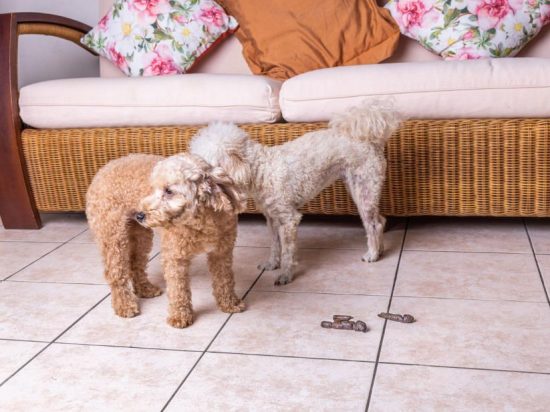
Coprophagia, the behavior of dogs consuming their own feces or that of other animals, can be a perplexing and unsettling issue for dog owners. To address and manage this behavior effectively, it is important to develop a comprehensive understanding of coprophagia.
Coprophagia refers to the act of dogs consuming feces. This includes their own feces as well as the feces of other animals. Although it may seem unconventional and unsanitary to humans, coprophagia is a behavior that occurs naturally in some animals, including certain species of canines. It is more commonly observed in puppies, especially during their early development stages. This behavior can sometimes continue into adulthood if not addressed. However, it is important to note that coprophagia can occur in dogs of all ages, including adult dogs.
Understanding the prevalence of coprophagia in dogs is essential for dog owners to recognize when intervention may be necessary and to take appropriate steps to address the behavior.
Why Do Dogs Eat Their Own Poop?
There are several behavioral causes behind why dogs eat their own poop. Understanding these causes can provide insights into this puzzling behavior and help guide the appropriate solutions.
Dogs have a strong instinct to imitate their mother’s behavior, and this includes cleaning up after themselves. Maternal cleanup behaviors involve the mother dog consuming the feces of her puppies to keep the den clean and protect them from potential predators. This behavior can become imprinted in puppies at a young age, leading them to develop coprophagia as they grow older.
Another behavioral cause of coprophagia is the dog’s instinct to hide the evidence of accidents, especially for animals that have been scolded or punished for defecating in inappropriate places. By consuming their feces, dogs can remove the evidence and lessen the chance of facing punishment.
Dogs have a natural scavenging instinct inherited from their wild ancestors. In the wild, dogs would scavenge for food wherever they could find it, including feces. This instinct can persist in domesticated dogs, leading them to eat poop as a way to obtain additional nutrients or satisfy their natural foraging tendencies.
Link Between Boredom and Coprophagia
Boredom and lack of mental stimulation can also contribute to coprophagia in dogs. When dogs are not adequately engaged or stimulated, they may resort to engaging in abnormal behaviors, such as eating their own poop. Providing ample physical exercise and mental enrichment can help prevent boredom-driven coprophagia.
Medical Conditions That Can Lead to Coprophagia
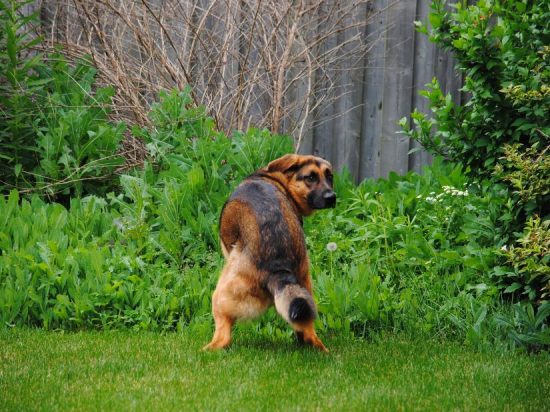
Dogs may engage in coprophagia due to certain medical conditions that affect their digestion and nutrient absorption. Understanding these underlying medical issues is crucial in addressing and resolving the behavior. This section will discuss some of the common medical conditions that can contribute to coprophagia in dogs.
Indicators of Nutrient Malabsorption
Nutrient malabsorption can occur when a dog’s digestive system is unable to absorb essential nutrients from their diet properly. This can result in nutrient deficiencies, prompting dogs to seek those missing nutrients in other sources, including their own feces. Dogs with nutrient malabsorption may exhibit signs such as weight loss, poor coat quality, and frequent diarrhea.
The Role of Gastrointestinal Problems
Gastrointestinal problems, such as inflammatory bowel disease (IBD) or exocrine pancreatic insufficiency (EPI), can disrupt dogs’ normal digestive processes. These conditions can cause malabsorption of nutrients and lead to coprophagia as dogs try to compensate for the nutrient deficiencies in their diet. Dogs with gastrointestinal issues may experience symptoms like chronic diarrhea, vomiting, and weight loss.
Diseases Influencing Fecal Eating: Worms and Parasites
Worm and parasite infestations can also contribute to coprophagia in dogs. Certain species of worms, including roundworms and hookworms, can rob dogs of essential nutrients, leading them to eat feces to regain those nutrients. Additionally, parasites like Giardia can cause diarrhea and malabsorption, further promoting the behavior of fecal consumption.
Vitamin Deficiencies and Their Effects
Vitamin deficiencies can significantly impact a dog’s overall health, including their behaviors. Certain vitamin deficiencies, such as a lack of vitamin B12 or vitamin D, can result in coprophagia. Dogs may instinctively consume feces in an attempt to obtain the missing vitamins from their diet. Vitamin deficiencies can occur due to poor diet quality or underlying medical conditions that impair nutrient absorption.
Understanding the presence of these medical conditions in dogs exhibiting coprophagia is crucial for effective intervention. If you suspect that your dog may be experiencing any of these medical issues, it is important to consult with a veterinarian for a proper diagnosis and treatment plan.
How to Stop Dogs from Eating Poop: Home Remedy Approaches
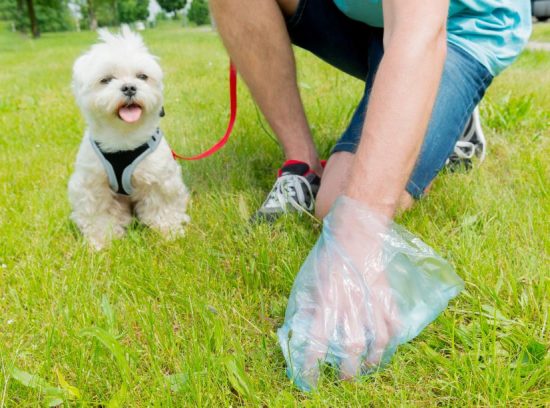
Taking immediate action to clean up feces can be an effective way to prevent dogs from eating it. Dogs are more likely to engage in coprophagia when they have easy access to their own waste or the waste of other animals. Prompt cleanup ensures that there are no opportunities for dogs to indulge in this behavior. Always have poop bags or a designated area for waste disposal readily available. By encouraging regular and thorough cleanup, you can create an environment that discourages coprophagia.
Training dogs with the reward system is another home remedy approach to address coprophagia. Dogs respond well to positive reinforcement, and using rewards can help modify their behavior around feces. When your dog refrains from eating poop, praise and reward them with treats, verbal praise, or playtime. Consistently reinforcing positive behavior will help your dog understand that not eating poop is desirable and will lead to rewards. Training sessions should be short, frequent, and consistent to achieve the best results.
Effective Dog Training Techniques to Discourage Coprophagia
Training techniques play a vital role in discouraging dogs from engaging in coprophagia, or the behavior of eating their own poop. By implementing consistent training methods, you can effectively address and reduce this unwanted behavior in your furry friend.
Using Commands to Interrupt the Behavior
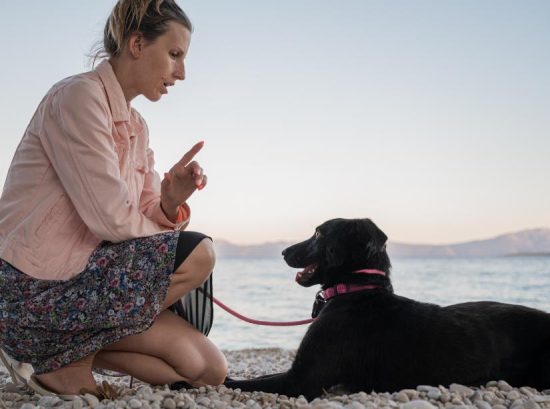
One of the most effective ways to address coprophagia is by using commands to interrupt the behavior. When you notice your dog showing interest in eating poop, promptly issue a command such as “Leave it” or “No.” The key is to use a firm yet gentle tone to convey your message. By consistently reinforcing this command, your dog will learn to associate eating poop with a negative response, ultimately discouraging the behavior.
Fostering Obedience and Redirecting Attention
Another essential aspect of dog training to combat coprophagia is fostering obedience. Teaching your dog basic obedience commands such as “Sit,” “Stay,” and “Come” can redirect their attention away from eating poop and towards more desirable activities. By engaging in obedience training regularly, you’ll establish a bond with your dog while reinforcing their understanding of appropriate behavior.
Training techniques such as using commands to interrupt behavior and fostering obedience are powerful tools in tackling coprophagia in dogs. You can effectively discourage your dog from engaging in this undesirable behavior by consistently implementing these methods and providing positive reinforcement. Remember to be patient and consistent in your training efforts, and always consult with a professional dog trainer or behaviorist if you need additional assistance.
Choosing the Right Diet to Combat Poop Eating in Dogs
Diet plays a crucial role in addressing coprophagia in dogs, and identifying a well-balanced canine diet is essential for their overall health and behavior. Nutritional adjustments can also help curb this unwanted behavior.
When it comes to choosing the right diet, it’s important to consider the specific needs of your dog. A well-balanced diet should include a mix of high-quality protein, healthy fats, carbohydrates, vitamins, and minerals. Incorporating a variety of nutrient-rich foods can help ensure that your dog is getting all the essential nutrients they need.
Some dog owners may find that adding supplements to their dog’s diet can be helpful in combatting coprophagia. Probiotics, for example, can support digestive health and may help eliminate any nutrient deficiencies that could be driving the behavior. It’s important, however, to consult with a veterinarian or veterinary nutritionist before introducing any supplements to your dog’s diet.
If you suspect that a specific ingredient or type of food is contributing to your dog’s coprophagia, you may consider making dietary changes. Experimenting with different brands or formulas can help identify any potential triggers and allow you to find a diet that is more suitable for your dog’s needs.
Exercise and Mental Stimulation: Preventing Coprophagia
Sufficient exercise and mental stimulation are crucial for preventing coprophagia, the behavior of dogs eating their own poop. By providing your dog with appropriate physical exercise and mental engagement, you can reduce the likelihood of them engaging in this unwanted behavior.
Designing an Exercise Regimen for Your Dog
When it comes to designing an exercise regimen for your dog, it’s important to consider their breed, age, and overall health. Dogs with high energy levels or working breeds may require more vigorous exercise, such as running, hiking, or playing fetch, to burn off excess energy. On the other hand, senior dogs or those with health conditions may benefit from low-impact exercises, such as leisurely walks or swimming.
Remember to start slowly and gradually increase the intensity and duration of your dog’s exercise sessions. Regular exercise not only helps prevent coprophagia but also improves your dog’s overall well-being, physical fitness, and mental health.
Creating a Stimulating Environment to Reduce Boredom
Boredom can contribute to coprophagia in dogs. To help reduce boredom, provide your dog with a stimulating environment filled with engaging toys and activities. Interactive puzzle toys, treat-dispensing toys, and chew toys can keep your dog mentally stimulated and entertained.
Additionally, consider incorporating training sessions and mental enrichment activities into your dog’s daily routine. Teach them new tricks, engage in obedience training, or participate in agility courses to challenge their minds and provide mental stimulation.
When to Consult a Veterinary Nutritionist
Consulting a veterinary nutritionist can be beneficial if your dog’s coprophagia persists despite dietary and behavioral interventions. These experts specialize in animal nutrition and can provide comprehensive guidance tailored to your dog’s specific needs. A veterinary nutritionist will thoroughly assess your dog’s diet, health, and behavior to identify any underlying factors contributing to the coprophagia. They can then develop a customized nutrition plan, including targeted vitamin supplementation, dietary adjustments, and behavioral modification strategies.
Working with a veterinary nutritionist ensures that your dog’s nutritional requirements are met while addressing coprophagia. This approach takes into account your dog’s unique needs and minimizes the risk of nutrient imbalances or deficiencies
FAQs on Why do dogs eat their own poop?
How prevalent is poop eating in puppies and adult dogs?
Coprophagia is more commonly observed in puppies, but it can also occur in adult dogs.
How can maternal cleanup behaviors contribute to coprophagia?
Dogs may eat poop as a result of imitated maternal cleanup behaviors, as they mimic their mother’s actions to keep the environment clean.
How does the scavenging instinct of wild ancestors contribute to coprophagia?
The scavenging instinct inherited from their wild ancestors can drive dogs to consume waste as a survival strategy..
What medical conditions can contribute to coprophagia in dogs?
Nutrient malabsorption, gastrointestinal problems, diseases such as worms or parasites, and vitamin deficiencies can all contribute to coprophagia in dogs.
When should I be concerned about my dog eating poop?
It is important to assess the behavior and consider intervention if it becomes excessive, persistent, or if it poses a risk to your dog’s health or well-being.
How does eating poop affect a dog’s health?
Eating poop can expose dogs to harmful bacteria, parasites, and potential health issues. It is important to address the behavior to protect your dog’s health.
How can I stop my dog from eating poop using home remedies?
Promptly cleaning up feces and using positive reinforcement training techniques can help discourage your dog from eating poop.
What are some effective dog training techniques to discourage coprophagia?
Using commands to interrupt the behavior and redirecting your dog’s attention to more desirable activities, along with fostering obedience through consistent training, can help curb coprophagia.
How can exercise and mental stimulation prevent coprophagia?
Designing an exercise regimen tailored to your dog’s needs and creating a stimulating environment with engaging toys and activities can help reduce boredom and prevent coprophagia.
How much pineapple should I give my dog to stop eating poop?
The pineapple method is a commonly recommended home remedy. Understanding the appropriate amount to give and being aware of any potential side effects is important.

